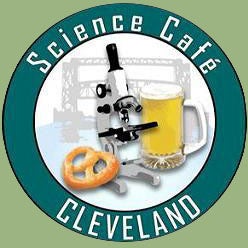Science Café Cleveland presents
How the Science of Paleontology Brings Dead Bones to Life
AUGUST 14, 2017
FEATURING:
Darin A. Croft
Paleomammalogist
Professor, Department of Anatomy, CWRU School of Medicine
EVENT INFORMATION:
Modern human beings have been around for only around 200,000 years and we have recorded history for less than 10,000 years. And yet we have achieved a remarkable level of detailed knowledge about what life was like stretching back billions of years. This is a truly astonishing achievement and much of it is made possible by the science of paleontology. While many of us are now accustomed to reading reports of fossil discoveries found in remote regions of the world that reveal yet more new species that we had not known of before, the process by which that information is gleaned is largely a mystery to most of us.
It starts with the discovery of a fragment of what is essentially a piece of stony material that we call a fossil. The process by which something that the uninitiated might dismiss as just another boring piece of rock is transformed into a vital piece of evidence about our deep ancestry is made possible by the forensic work undertaken by paleontologists.
What paleontologists do involves expertise in answering difficult questions such as: What exactly constitutes a fossil? How does something become a fossil? Why aren't fossils more abundant? How does one decide where to look for them? How is the age of a fossil determined? How is a full animal reconstructed from fragments? How does one know that one has found a new species? How are some of the exterior features and behavior deduced?
Darin Croft, author of the award-winning book Horned Armadillos and Rafting Monkeys: The Fascinating Fossil Mammals of South America, will talk about the nature of the forensic investigative work conducted by paleontologists, why their work goes well beyond creating museum exhibits, and the value that it provides society.
LINKS OF INTEREST:
Darin A. Croft | Research Overview
Reconstructing Extinct Animals | Smithsonian National Museum of Natural History
History Matters: Ecometrics and Integrative Climate Change Biology. The Royal Society Publishing | Proceedings of the Royal Society B | Biological Sciences | 12 January 2011
What is systematics and why is it important? | Freudenstein Lab | The Ohio State University
Lizzie Wade (2015). How the Amazon became a crucible of life | Science AAAS | Latest News | October 28, 2015
CLEVELAND PUBLIC LIBRARY BOOK PICKS:
If the discussion topic for this month's Science Cafe has the gears turning and you are interested in continuing your quest for information, click here to view just a small sample of what's available at Cleveland Public Library on the subject and/or related topics.
EVENT DETAILS:
WHERE:
The Music Box Supper Club - Concert Hall
1148 Main Avenue
Cleveland, Ohio 44113
WHEN:
August 14, 2017
Doors will be open 5:30 - 9:00 PM (Last call at 8:45PM). Presentation and discussion is 7:00 - 8:00 PM. The Concert Hall will also host a limited menu before and during the event. Not to mention a full bar! (Click here to view menu). Come early, get a good seat, grab a bite and a beverage and enjoy the discussion!
WHO:
Sponsored by Case Western Reserve University chapter of Sigma Xi, WCPN ideastream, and the Music Box Supper Club.
Click here for an event flyer (.pdf)






